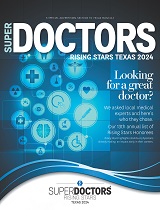American Cancer Society (cancer.org)
January 16, 2015
By Stacy Simon
Cancer is often unpredictable, but there are things everyone can do to help reduce their cancer risk or improve their chances of beating the disease if they do get it. What's more, some of those same behaviors can also help lower your risk for other serious diseases, and boost your odds of living a longer, healthier life.
1. Get regular cancer screening tests.
Regular screening tests can catch some cancers early, when they're small, have not spread, and are easier to treat. With cervical and colon cancers, these tests can even prevent cancer from developing in the first place. Talk with your doctor about the tests for breast, cervical, colon, lung, and prostate cancers.
2. Get to and stay at a healthy weight.
Being overweight or obese is a risk factor for many cancers, including breast, colon, endometrium, kidney, esophagus, and pancreatic cancer. You can control your weight through regular exercise and healthy eating.
3. Exercise regularly.
Physical activity has been shown to lower the risk of several types of cancer, including breast, endometrium, prostate, and colon cancer. It also reduces the risk of other serious diseases such as diabetes and heart disease.
Adults should get at least 150 minutes of moderate-intensity activity (equal to a brisk walk) or 75 minutes of vigorous activity (makes your heartbeat and breathing faster, and makes you sweat) each week, preferably spread throughout the week.
Kids should get at least 1 hour of moderate- or vigorous-intensity activity each day, with vigorous activity at least 3 days each week.
4. Eat a healthy diet.
Studies show that eating a lot of different vegetables and fruits, whole grains, and fish or poultry is linked with a lower risk of developing certain cancers. On the other hand, eating more processed and red meat is linked with a higher risk of developing certain cancers. The American Cancer Society recommends:
Eating at least 2½ cups of vegetables and fruits each day
Eating less red meat (beef, pork, and lamb) and less processed meat (bacon, sausage, luncheon meats, and hot dogs)
Choosing breads, pastas, and cereals made from whole grains instead of refined grains, and brown rice instead of white
Eating fewer sweets
5. Avoid tobacco.
Tobacco use in the US is responsible for nearly 1 out of every 5 deaths - about 480,000 early deaths each year. About 80% of lung cancer deaths and 30% of all cancer deaths are caused by tobacco use. If you don't use tobacco products, don't start. If you do, quit. For help, visit cancer.org/quitsmoking, or call the American Cancer Society at 1-800-227-2345.
6. Limit alcohol.
Research has shown that alcohol can increase your risk for certain kinds of cancer, including breast, mouth, throat, voice box, esophagus, liver, colon and rectal cancer. The more alcohol you drink, the higher your risk.
Men should have no more than 2 drinks a day and women no more than 1.
One drink is equal to about 12 ounces of beer, 5 ounces of wine, or 1.5 ounces of 80-proof liquor.
Reviewed by: Members of the ACS Medical Content Staff
ACS News Center stories are provided as a source of cancer-related news and are not intended to be used as press releases. For reprint requests, please contact [email protected].

